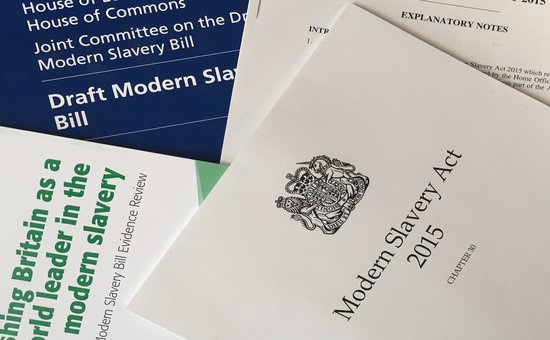EU law. Global impact. labour exploitation and forced labour.
A new briefing and report from Anti-Slavery International, Cividep India and Repórter Brasil considers the potential impact of human rights due diligence laws in the EU on labour exploitation and forced labour. The European Commission will soon publish a proposal for an EU business and human rights law that would require companies operating in the...




 Tea pickers in Assam. Credit: Traidcraft Exchange / HELM Studio[/caption]
Tea pickers in Assam. Credit: Traidcraft Exchange / HELM Studio[/caption]
